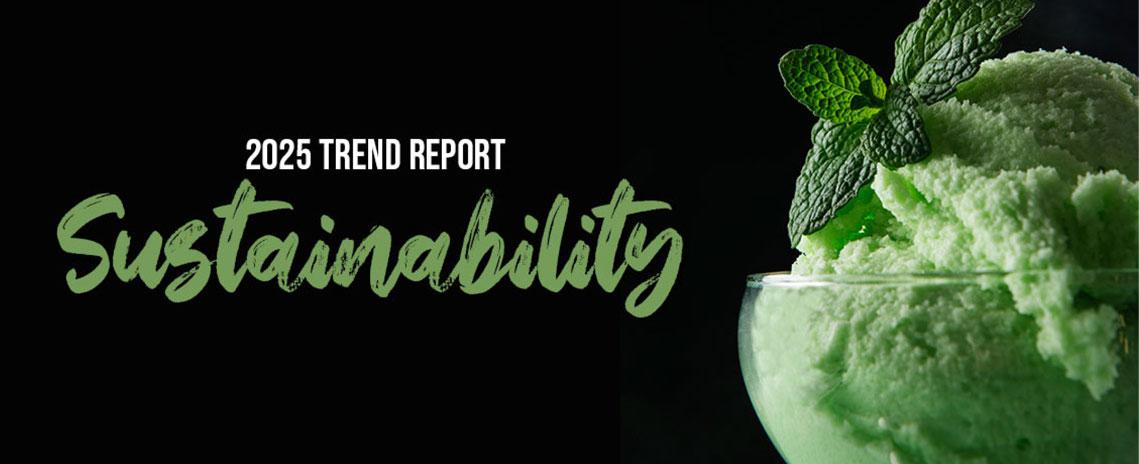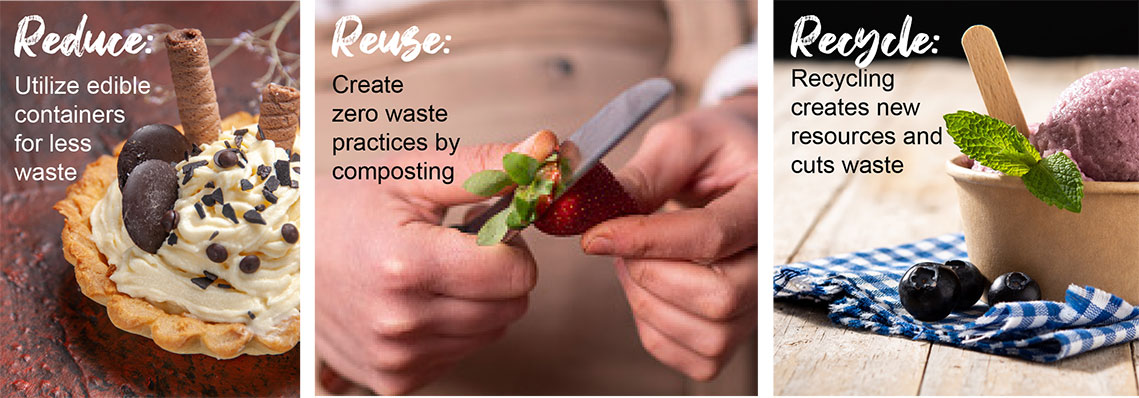2025 Trend Report: Sustainability

Sustainability: A Strategic Imperative for the Future of Foodservice
The National Restaurant Association’s What’s Hot 2025 Culinary Trend Forecast has spoken: “Sustainability and Local Sourcing” is the number one trend shaping the future of the foodservice industry. Industry leaders and chefs alike recognize that a restaurant’s sustainability practices are no longer a nice-to-have—they’re a decisive factor in where consumers choose to dine.
Yet despite its prominence, the term sustainability remains broadly defined and often misunderstood—even among operators. This disconnect presents both a challenge and an opportunity: how can restaurants effectively communicate their commitment to sustainability in a way that’s actionable and meaningful to their
guests?
The answer lies in specificity and clarity.
Sustainability extends far beyond sourcing local ingredients. It encompasses everything from recyclable and compostable packaging to zero-waste cooking practices, upcycled ingredients, and environmentally conscious supply chains. Operators should focus on tangible, easy-to-understand practices that can be clearly communicated to customers.
While concepts like regenerative agriculture are important, they may be too complex for the average consumer to digest—especially in the context of a brief menu description.“Decide what you stand for—what your sustainability ethos is—and spotlight it,” advises Mike Kostyo, trend analyst and culinary thought
leader. “Promote it through your menu and across digital platforms. Gen Z, the most sustainability-minded generation to date, is paying attention. And they’re quick to spot messaging that lacks authenticity.”
For operators, this is a call to action: refine your sustainability narrative, ensure it aligns with your operations, and communicate it with transparency and purpose. Those who do will not only differentiate their brand in a crowded market but also build lasting loyalty with a growing base of values-driven consumers.
